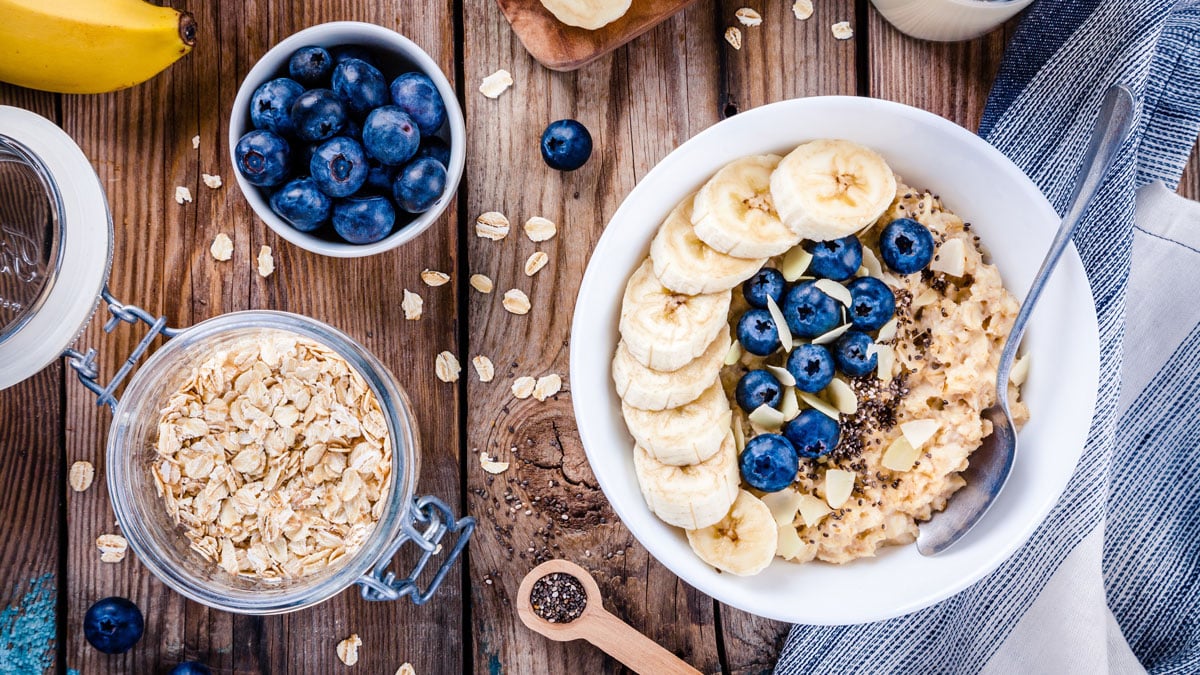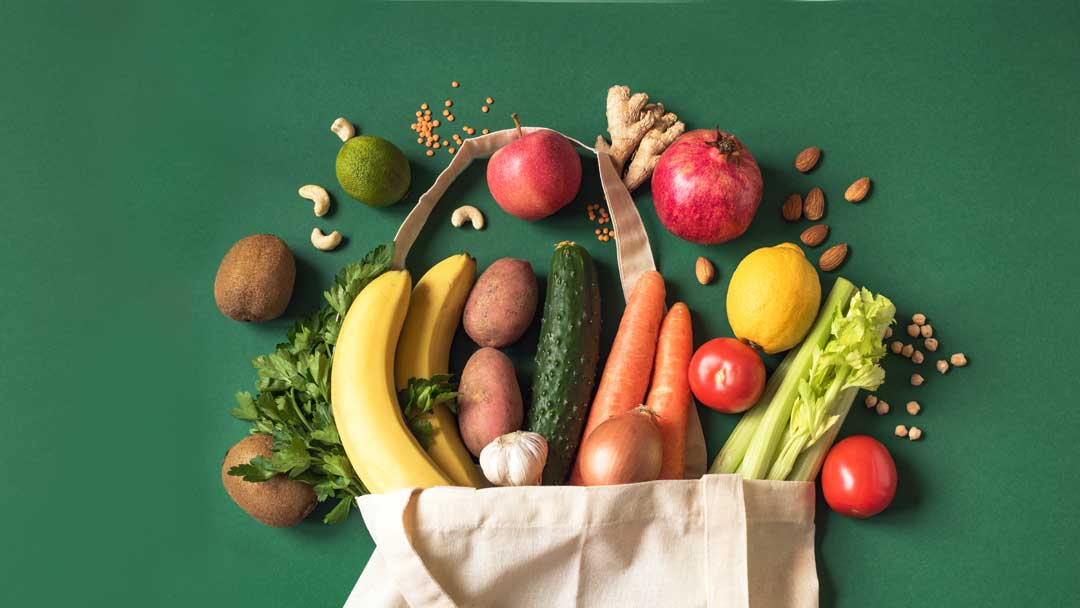People often ask me if coffee can actually improve concentration and productivity at work. These questions come as no surprise, given that we live in the land of Tim Hortons. Canada ranks 10th globally in terms of coffee consumption—only Europeans drink more—with Canucks averaging 1.3 cups each day.
While coffee and other beverages and foods containing caffeine can boost concentration and productivity for a few hours, plenty of other foods do a better job and provide additional health benefits.
As a Registered Dietitian at TELUS Health MyCare™, this is what I recommend to my clients to help boost energy, focus and concentration.
Best foods to improve focus and concentration
Your brain is energy-intensive; it needs a lot of fuel in the form of glucose to do its job of focusing and concentrating (among many other functions). If you haven’t eaten enough, your brain creates hunger cues for your body (through a hormone called “ghrelin”) to let it know it’s time to eat.
However, not all foods are created equal. Some choices can leave you feeling tired, sluggish and unfocused, while others can energize you and make it easier to focus.
If you want to improve your productivity at work, here are some recommendations for what to eat.
Protein-rich foods
As a nutrient, protein is a longer-lasting energy source than the carbohydrates in doughnuts or danishes, which we tend to eat with coffee. Lacking focus or feeling tired in the late morning or afternoon often happens when we favour carbs over protein at breakfast, lunch or on a break.
Protein-rich foods can prevent overeating later in the day by making you feel fuller for a longer period of time. Additional benefits of protein include supporting the health of your skin, hair, bones and heart and building muscle tissue to boot. To help keep your energy levels up throughout the day, try to eat a little bit of protein at every meal and snack.
Examples of protein-rich foods include:
- Chicken
- Tuna
- Eggs
- Beans
- Lentils
- Cheese
- Yogurt
- Nuts
- Tofu
Antioxidant-rich foods
As molecules that prevent or delay cell damage, antioxidants are good for brain health. They also help flush toxins out of your body and help fight all forms of cancer.
Examples of antioxidant-rich foods include:
- Avocado
- Berries
- Leafy greens
- Extra virgin olive oil
- Dark chocolate
Fibre-rich foods

By helping to regulate your body’s use of sugars, fibre keeps your energy levels and focus steady. It also controls your appetite, keeps you regular, and has been shown to reduce the risk of everything from heart disease and stroke to type 2 diabetes and cancer.
Examples of fibre-rich foods include:
- Legumes
- Nuts
- Seeds
- Whole grains
- Fruits
- Vegetables
The connection between hydration and focus
Did you know that being dehydrated can make it harder to focus? Being adequately hydrated improves blood pressure, circulation and blood flow to all parts of your body, including your brain.
Drinking fluids also helps the heart pump blood and transport oxygen and nutrients throughout the body. Because of this, being dehydrated can make you feel sleepy and less alert. About 75% of your brain is made up of water, so being dehydrated by even a little bit can negatively affect brain function.
For men, I recommend around 3 litres of fluids a day which is 12 cups.
Food and ADHD
For my clients that have attention deficit/hyperactivity disorder, I focus a lot on how often to eat. One simple tip is to eat approximately every 4 hours to avoid energy slumps and mood crashes.
Protein is especially important for people with ADHD. When you eat protein, your body creates neurotransmitters that increase alertness and energy, which can help with focus and concentration. Protein can also prevent surges in blood sugar, which may increase hyperactivity and impulsivity.
Stress, diet and poor focus

When you’re stressed or anxious, it can also make it hard to focus. Did you know that not eating properly can lead to feelings of anxiety and stress? This is a big part of why eating a balanced diet can help improve focus and concentration.
If you find yourself relying on refined carbohydrates throughout the day, like cookies, crackers, and white bread, this can make blood sugar regulation more challenging, which can leave you feeling more anxious.
Make sure to eat consistently throughout the day, and don’t skip meals. It can be tempting to forget about lunch when you have a lot of work to do; however, it can often be counterproductive. It’s hard to focus properly if your blood sugar gets low, leading to feelings of anxiety and stress.
Simple lunch and breakfast ideas
Here are some delicious breakfast and lunch ideas to add more protein, fibre, and antioxidant-rich food into your day:
- Omelette with veggies
- Steel-cut oats with berries and chopped nuts
- Greek yogurt bowl with pumpkin seeds and banana slices
- Tuna melt on whole grain bread with a side of veggie sticks
- Turkey bean chilli
- Whole wheat tortilla wrap with chicken, cheese, hummus and veggies
So next time you’re busy at work and feeling frustrated by your inability to focus, remember to take a break and eat some protein. Your body, brain and boss will thank you for it!
Do you have a favourite protein snack? Share with us in the comments below.
Are You at Risk?
Learn your risk level for the most common men’s health conditions in 10 minutes with a free, confidential, and personalized report.



I am 76 and I have Crohn’s, but I am active refereeing basketball and umpiring both baseball and softball. In order to do that I have to fast until mid afternoon on days that I have games. I then have a light lunch and ultimately a Boost drink before the games. During the games I hydrate with an electrolyte drink. I may or may not indulge in a late evening dinner. Any other suggestions???
Let me check in with our dietitian Caitlin over at TELUS Health MyCare and see if she has any tips. Hang tight, Ian!
~Canadian Men’s Health Foundation team member
I am very confused about what to eat because of my body’s medical issues. What’s healthy for one issue is not healthy for another issue.
I eat well but I drink too much coffee and am not hydrated. I have not found a great way to remind myself to A) bring my water bottle to my office and B) sip at it. I usually just down the whole thing or forget about it. Have to be more vigilant about it or make a calendar reminder or something.
Great Article